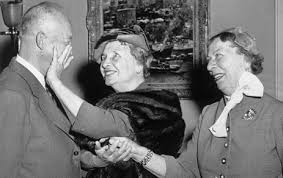Sara Jacobovici
Credentials
Finances
- Ra'anana
- Hod HaSharon
Sara Jacobovici
 Verified
Verified
Credentials
Creative Arts Psychotherapist
MCAT
Finances
350-500 NIS
N/A
Sliding Scale
Introductory session free of charge.
ABOUT THE THERAPIST
Sara Jacobovici Owner Creative Arts Therapies Services*
Who I am:
I am a Creative Arts Psychotherapist specializing in life adjustments, grief, and trauma.
I am the proud owner of Creative Arts Therapies Services.
I have accumulated almost 40 years of learning and experience and created a framework and approach that enables my clients to grow, develop, and achieve personal and professional success.
I do this through my education and training in human-centered therapy and tools such as the creative arts, visual arts, and music. You don’t have to have any previous knowledge or skills to engage in this form of therapy.
How I work:
My approach is human-centered therapy; I am a human approaching another human. I don’t tell you what to do, how you are feeling, or what you are thinking. What I do is:
Help you gain new perspectives about yourself and how you relate to others and the world around you.
Help you make connections between the choices you make today and the influences of your past experiences.
Help you edit your life story and your narrative, by learning what is yours to keep and what doesn’t belong to you.
Enable you to gain insight and therefore, control, over your life.
“We cannot solve our problems with the same thinking we used when we created them.” - Albert Einstein
An easy way to change our thinking is metaphorically. Metaphors are the bridge between verbal and non-verbal communication.
When we think metaphorically, we utilize our ability to imagine. Our imagination is given expression through the non-verbal and verbal language of metaphors. The metaphor is "out there" to make it possible for us to hear, see, and experience things in different ways.
In sum:
The therapeutic process will lead you toward awareness. With awareness, you will be able to understand how your feelings, behaviors, and choices are influencing you and then help you decide what to do about it. This process of therapy lets you become an active participant in your life.
*I am proud to announce that my business, Creative Arts Therapies Services has been registered with the Ministry of Defense. Please email me if you are interested in finding out more. [email protected]
QUALIFICATIONS
MCAT
Hahnemann University
1985
Degree
MCATEducation
Hahnemann UniversityYear of Graduation
1985Years in Practice
39
DISTANCE COUNSELING
None
BLOG POSTS

Looking at the Whole Person and Seeing the Whole Picture
In an important way I feel encouraged by the results of a new study published…

If you don’t use it, you lose it.
We have an innate ability to adapt to new conditions. This ability enables us to…

Opposites Do Not Exist; Opposites Are Created
In both our personal and professional lives, it is more manageable to work with ideas, strategies, plans, goals, relationships, feelings and so on, if we place them in an opposite.

The Sensational Language of Engagement
This blog is dedicated to Gretchen Schmelzer whose work has often inspired me. Her more…
PRIMARY SPECIALTIES
Couples / Relationship / Marriage Counseling
Family Issues
Grief
Trauma / Post Traumatic Stress Disorder PTSD
ADDITIONAL SPECIALTIES
Abuse
Adjustments
Bipolar Disorder
Borderline Personality Disorder
Depression
Developmental Disorders
Dissociative Disorders
Life Transitions
Mood Disorders
Obsessive Compulsive Disorder (OCD)
Personality Disorders
CLIENT FOCUS
Population
Adults
Couples
Families
Men
Women
Geriatric
Languages Spoken
English
Romanian
TREATMENT APPROACH
Expressive Arts TherapyExpressive Arts Therapy is particularly beneficial for clients who struggle with describing what they are feeling verbally. Through imagination and creation of different art forms, clients are able to interpret and communicate their inner world and catalyze healing. Expressive arts therapy can involve the use of multiple modalities, such as visual arts, music, movement, drama, storytelling, poetry, and play. It is used to help individuals of all ages, including children and adults, to explore their feelings, reconcile emotional conflicts, foster self-awareness, manage behavior and addictions, develop social skills, improve reality orientation, and solve problems.
Person-Centered Therapy (Rogerian Therapy)Person-centered therapy, or Rogerian therapy, was developed by Carl Rogers in the 1940’s. It is a form of talk therapy that emphasizes the importance of providing psychological safety, unconditional positive regard, and empathic understanding to clients. This type of therapy is based on the belief that individuals have an innate capacity for self-actualization and self-understanding and that the therapist's role is to provide a supportive environment in which this process can take place. Through the use of active listening, open-ended questions, and non-judgmental reflection, the therapist helps the client to explore their thoughts, feelings, and experiences in a safe and accepting environment. By doing so, clients are able to gain insight into their issues, develop a greater understanding of themselves, and work towards personal growth.
Psychodynamic TherapyPsychodynamic therapy is a form of therapy that focuses on the unconscious mind and how it affects behavior. It works to help people understand and work through past experiences and feelings that may be causing difficulties in the present. This type of therapy encourages individuals to explore their emotions, relationships, and behaviors in order to gain insight into their current difficulties. It can help individuals better understand themselves and their motivations, and gain insight into how past events have impacted their current lives. People tend to develop defense mechanisms when faced with challenges in life. Defense mechanisms may keep painful feelings, memories, and experiences in the unconscious. A few common defense mechanisms include: denial, repression, and rationalization. Psychodynamic therapists encourage people to speak freely about their emotions, desires, and fears. Being open may help uncover vulnerable feelings that have been pushed out of conscious awareness. According to psychodynamic theory, behavior is influenced by unconscious thought. Once painful feelings are brought forth and processed, the defense mechanisms are no longer needed and a person in treatment can start changing unhelpful patterns when coping with life’s challenges.
Developmental, non-verbal, sensory based, Humanistic
SERVICES OFFERED
Individual Therapy

BLOG POSTS

Looking at the Whole Person and Seeing the Whole Picture
In an important way I feel encouraged by the results of a new study published…

If you don’t use it, you lose it.
We have an innate ability to adapt to new conditions. This ability enables us to…

Opposites Do Not Exist; Opposites Are Created
In both our personal and professional lives, it is more manageable to work with ideas, strategies, plans, goals, relationships, feelings and so on, if we place them in an opposite.

The Sensational Language of Engagement
This blog is dedicated to Gretchen Schmelzer whose work has often inspired me. Her more…
 Verified
Verified

